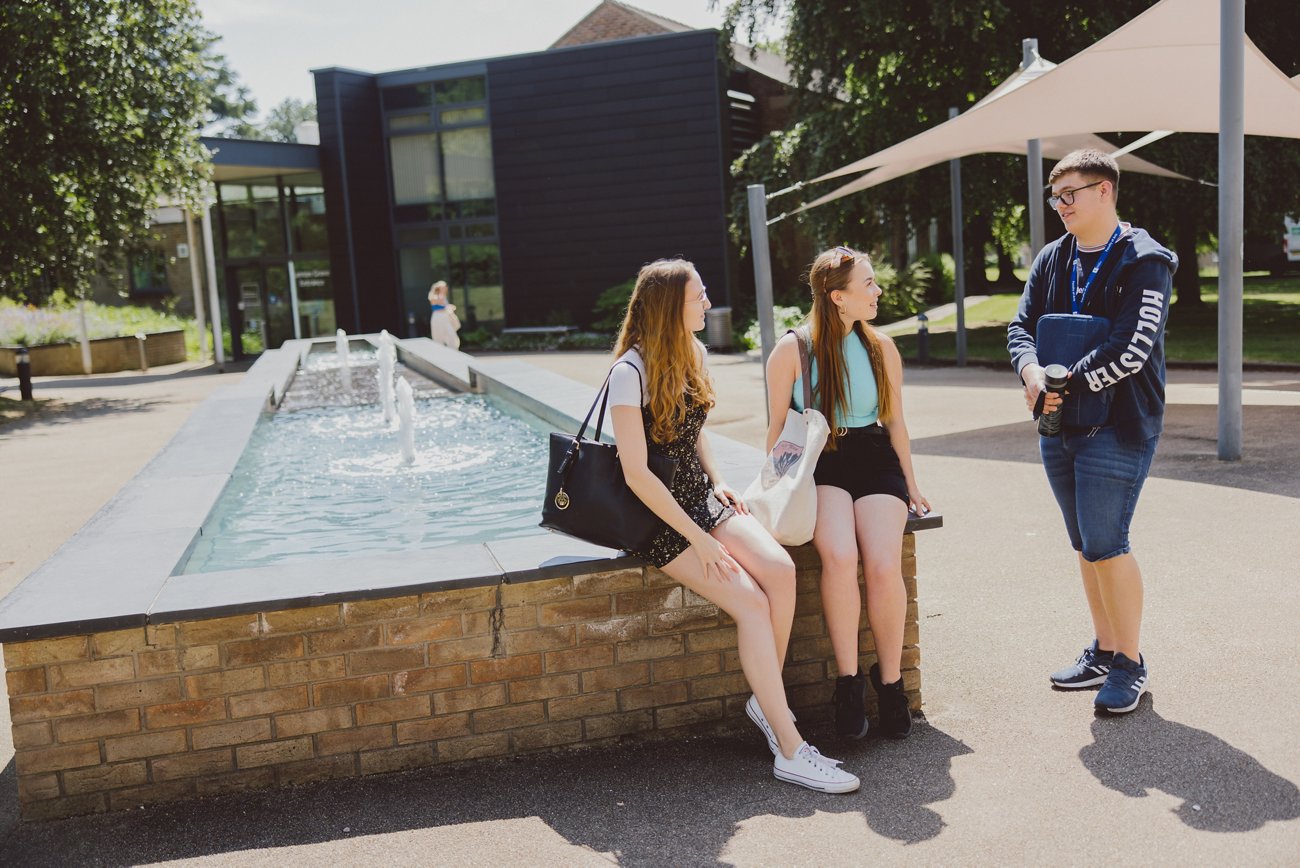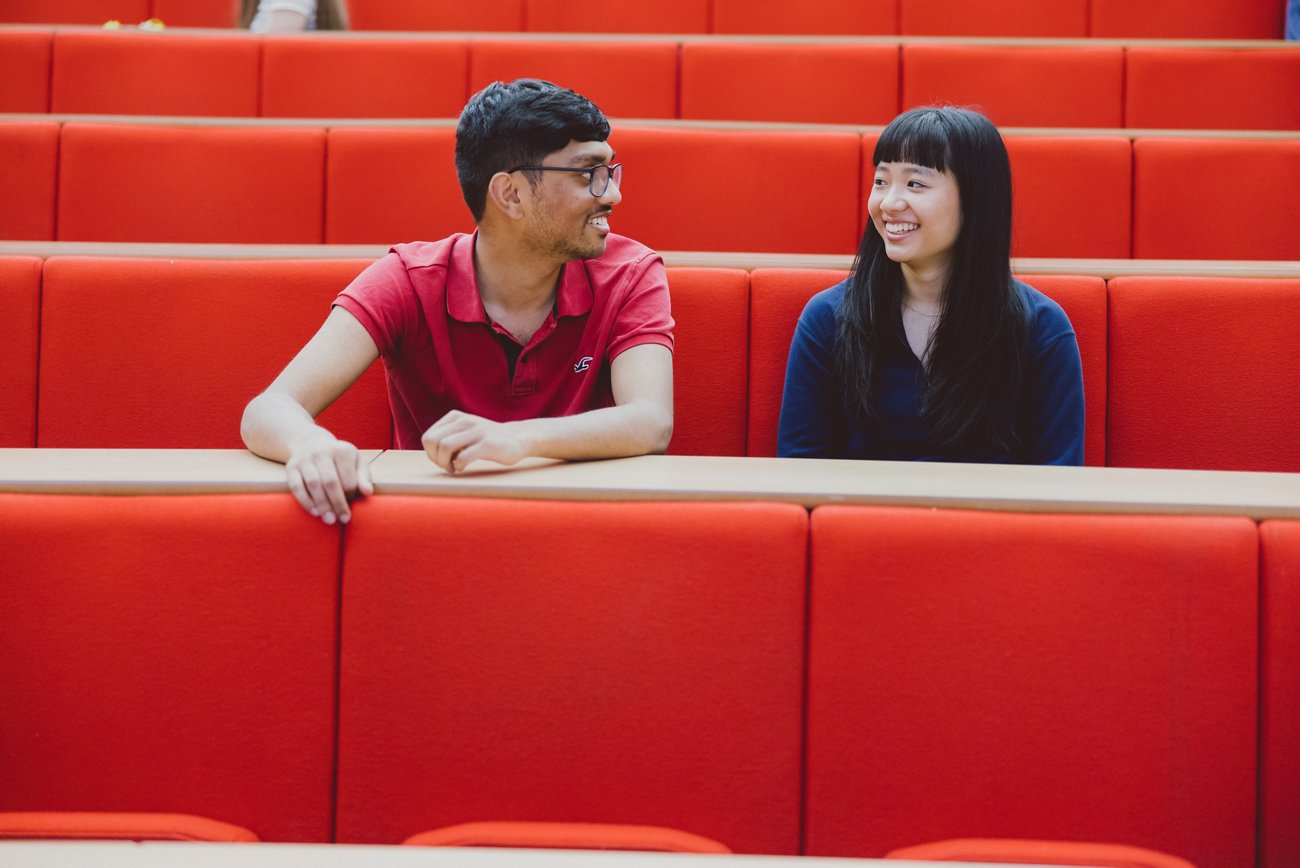

Emily
Why did you choose your degree?
I got in through clearing, I didn't get my initial grades I needed to do history. It didn't work out, but it was one of those moments I sort of questioned why did I not look at theology sooner? I went to a Jewish school. I'm Jewish. So, I have always been required to study religion. It’s something I've always been quite good at but never really considered it until it got to university level. And then ended up choosing it because, to be completely honest it's what I had the grades for that would accept me.
I believe it was one of the best things that ever happened to me because, I fell in love with the subject and ended up getting published in in an academic journal with theology. I really found my niche.
What did you enjoy most about your course and would you say this influenced your career path?
What I enjoyed the most was how lucky I felt, because the theology department, in terms of the grand scheme of things, is a smaller department. I think maybe the amount of people on our course meant that we got such close attention from all of our tutors - we all knew each other by name.

If you needed support there was no questions around whether you would feel comfortable enough talking to a lecturer. It was just very open, there was camaraderie and a family feeling. I feel like the tutors and the people is what made it so amazing.
I wouldn’t say that the course directly influenced my career, at least not yet. As I think that I've always had a bit of an urge to work in tech, which is why I'm doing what I'm doing now, but I think at some point I will definitely want to revisit the world of theology because like I said, I fell in love with it.
But if I didn’t pursue tech while I had this burning desire to do so, then I sort of wouldn’t forgive myself. My degree isn’t going anywhere, so I think I will revisit that at some point.
What were your next steps after leaving higher education? Did you know what career or industry you wanted to move into after graduation?
No, not 100%. I wanted to do law. I knew I was always interested in crime. And then as I was finishing university, the world of cybercrime and online crime became more and more prevalent, which is why I then thought, if I'm not going to be a lawyer and work sort of on that side of things, then maybe there's opportunities to work with online crime instead, which is what landed me my first job working in the cyber security space.
How were you able to go from humanities to tech?
I had lots of work experience in the legal industry, so working in that world. I also worked quite a bit with criminal barristers as well. So that's sort of what introduced me to crime. It was at the end of my university journey, GDPR legislation got introduced so, cybercrime was massively on the rise. So, the work in the legal world started to shift a bit more digitally anyway and I just decided to grab onto that and stick to it and see where it took me.
How would you say your degree prepared you for your current role?
It's a humanities degree and it is an essay-based subject, it enabled me to construct a solid argument and that is a part of what I'm doing now, those communication skills have been invaluable. Just being able to communicate at all levels, that's been a massive part, conducting succinct arguments and being quite precise in what you're trying to say, not waffling. That was a big thing that University taught me.
What do you enjoy most about your job now?
I love the people that I work with, But I also love that the work that I'm doing is being seen by millions of people all day, every day. I still have ‘pinch me’ moments every day or night. I can't believe that what I'm doing is being seen by so many.
What are your future career ambitions?
I don't know for now, I want to conquer the world of tech, I want to teach myself to code. I'm learning from all of those around me. I work with software developers and engineers, data scientists, I want to basically soak up as much as I can from those around me. I didn't know what product management was a year and a half ago. So, in a year and a half, I imagine my view will be very different. But for now, product management in the world of tech is what I envisage for my future, but if I see something else that in the world of tech that might catch my eye, then maybe I'll turn to that. But no, for now what I’m doing is where my focus is at.
If you could you go back, what changes would you have made in your approach to your student life that would have made getting to this point in your career easier?
It sounds a bit generic and maybe a bit cringe, but just to go with it and trust the process, because I think there are so many times where you’re at university, and you still so stuck on what you think you should be doing. I remember, especially when I started that first job in the cybersecurity space, I thought this will be my career, this is what I'm going to do. And I was so set, you end up putting a lot of pressure on yourself that you have to finish university and find your job and get on with it.

I think it’s all about trial and error and trusting the process. If I hadn’t gone through all of the other jobs before, I would never have ended up where I am now.
I've never been as happy as I am in a job, I don't get the ‘Sunday Scaries’, I look forward to going into the office, there was a time where I didn't think I'd ever have that. You leave uni and you're not 100% sure of what the future holds, but just trust that whatever is meant to be, will be and throw yourself into everything. Get as much experience as you possibly can, like work experience, use the alumni network etc. Because the only way you're going to find out what it is you want to do is by trying different things.
What does success mean to you?
Funnily enough, my first ever interview after university, they asked me 'What do you see as your five-year goal?' and I’d never been interviewed before from an employer. So, I just said 'Oh I want to be successful'. I think I didn't really know what that meant.
But now I see that, the term success can be defined in a million different ways, but for me I just want to be. In that, my success is that I'm constantly learning. I'm keeping my mind open to all different opportunities, and I want to be known as being one of the best in my company at the very least, I want to be known as a damn good product manager. One of the ones at the top of the field, inspire others and teaching others, because there's been so many people around me that I've learned from, I'd love to be like them.




